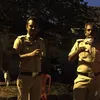Coronavirus: Govt allows migrants to go home, says new guidelines soon on lockdown relaxations
The Union Home Ministry said its review of the COVID-19 situation has shown tremendous gains from the lockdown, and new guidelines will come into effect from May 4, giving "considerable relaxations to many districts".
Many districts will get "considerable relaxations" beginning May 4 as the ongoing nationwide lockdown has resulted in "tremendous gains" in the COVID-19 fight, the government said on Wednesday, after it paved the way for lakhs of migrant workers and students stranded at various places for over a month to return to their homes, including by crossing state borders.
The COVID-19 tally, in the meantime, rose further to take the number of those having tested positive for the deadly coronavirus infection to over 32,000, and the death toll to at least 1,064 across the country, according to numbers announced by various states and union territories.

The Union Home Ministry, however, said its review of the COVID-19 situation has shown tremendous gains from the lockdown and new guidelines will come into effect from May 4, giving "considerable relaxations to many districts".
Without divulging any details regarding the possible relaxations, the ministry said these new guidelines will be announced in the days to come.
There have been expectations that private vehicles may be allowed and more categories of shops can be opened. However, public transport, academic institutions and public gatherings may remain shut, going by what officials have said in the past few days.
Fresh indications also emerged that the lockdown may continue in some form at least, and in some parts of the country beyond May 3, when the second phase is scheduled to end.
The Punjab government announced extension of the lockdown restrictions for two more weeks after May 3, while West Bengal Chief Minister Mamata Banerjee said experts and doctors are of the opinion that the restrictions imposed to check the spread of COVID-19 should continue in the state till the end of May.
Telangana Chief Minister K Chandrasekhar Rao has already announced extension of the lockdown in his state till May 7 without any relaxations.
During his last interaction with chief ministers on Monday, Prime Minister Narendra Modi had told them that the economy would need to be given importance too while fighting the COVID-19 pandemic.
Ever since its emergence in China last December, more than 31 lakh people have tested positive for the deadly virus infection worldwide, while the death toll has topped two lakh. Some countries have, however, begun easing the lockdown.
The US, which is among the worst hit globally, reported that its economy shrank at a 4.8 percent annual rate in the last quarter, triggering a recession that will end the country's longest ever expansion period.
Following guidelines from the centre, some states in India have also allowed opening of standalone shops in non-containment zones, while several state governments have been demanding steps to allow movement of migrant workers to help them reach their respective homes. Some states, including Uttar Pradesh, have already undertaken special initiatives to bring back migrant workers and students.
To help these people who have been stuck in various cities for over a month, many of whom have been left jobless and homeless due to the lockdown, the Union Home Ministry has now passed an order to allow their inter-state movement to reach their respective destinations, subject to certain conditions. This will also apply to pilgrims, tourists, students and other people stranded at different places.
In the order, Union Home Secretary Ajay Bhalla said buses shall be used for transport of such groups of stranded people and these vehicles will be sanitised and will have to follow safe social distancing norms in seating.
Listing the conditions, the ministry said all states and union territories should designate nodal authorities and develop standard protocols for receiving and sending such stranded persons. In case of movement beyond states or UTs, the sending and receiving states will need to consult each other and mutually agree to the movement by road.
These people would be screened, and only those found asymptomatic would be allowed to proceed. On arrival at their destination, they would be assessed by local health authorities, and kept in home or institutional quarantine, as required by the assessment, the order said.
In Maharashtra, Home Minister Anil Deshmukh said his government is in talks with chief ministers of other states over facilitating return of migrant workers to their native places in a planned manner.
Delhi Chief Minister Arvind Kejriwal said he is in touch with other state governments on the Home Ministry order and told migrant workers to stay put till he informs them about the final decision in one or two days.
Mumbai and Delhi are among major urban centres where a large number of workers from other states are stranded and have been demanding transport arrangements be made for them to go back to their native places.
Some states are said to be reluctant in allowing return of their natives from other places due to fears of the infection.
The University Grants Commission (UGC), in the meantime, said the new academic session for freshers will begin in universities from September and for already enrolled students in August.
It also advised universities to follow a six-day week pattern and devise proforma to record travel or stay history of staff members and students for the lockdown period.
The central government asked its 48.34 lakh employees to download 'Aarogya Setu' mobile app immediately and report to office only when it shows "safe" status for commuting. The app, developed by the government, helps people assess themselves on the risk of them contracting the coronavirus infection.
Union Health Minister Harsh Vardhan said of the total active COVID-19 cases in the country, only 0.33 percent patients are on ventilators, 1.5 percent are on oxygen support and 2.34 percent are in ICU.
Maharashtra tops the nationwide death toll, while it also has the highest number of confirmed cases in the country.
Mumbai's Dharavi area reported 14 new coronavirus cases during the day, taking its overall tally to 344. Considered Asia's biggest slum, Dharavi has so far reported 18 deaths.
Overall, Maharashtra has reported 9,915 positive cases and 432 deaths. In Mumbai alone, 26 patients died in the last 24 hours and 475 tested positive, taking confirmed cases there to 6,457 and the death toll to 270, according to officials.
In the national capital, the new confirmed cases included 11 family members of an LNJP Hospital dietician, who had earlier tested positive. However, none of the hospital employees, who came in contact with the dietician, have tested positive.
Gujarat, the second most affected state, saw more than 300 new cases, taking its tally of confirmed cases to 4,082, while the death toll rose by 16 on Wednesday to reach 197.
Rajasthan Chief Minister Ashok Gehlot told PTI in an interview that the state's count of more than 2,000 COVID-19 cases is not a cause of worry because his government's objective is to ensure not a single case goes undetected.
Edited by Aparajita Saxena








